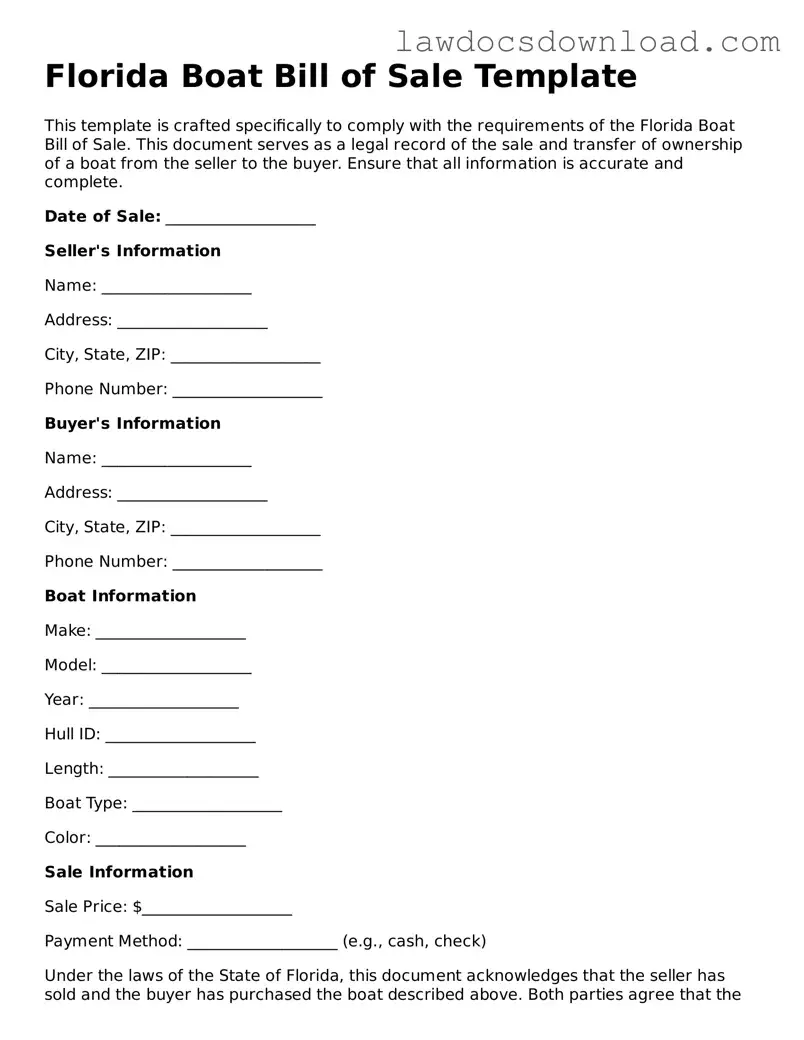Legal Florida Boat Bill of Sale Form
The Florida Boat Bill of Sale form is a legal document used to record the transfer of ownership of a boat from the seller to the buyer within the state of Florida. This essential piece of paperwork is not just a receipt; it also serves as proof of purchase and details the agreement between the parties involved. It is crucial for registration and legal purposes, ensuring that all transactions are properly documented.
Launch Boat Bill of Sale Editor Here

Legal Florida Boat Bill of Sale Form
Launch Boat Bill of Sale Editor Here

Launch Boat Bill of Sale Editor Here
or
Free Boat Bill of Sale
Get this form done in minutes
Complete your Boat Bill of Sale online and download the final PDF.